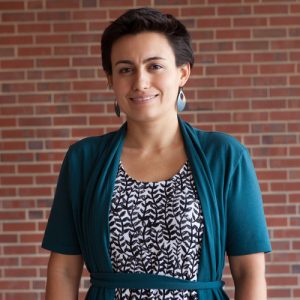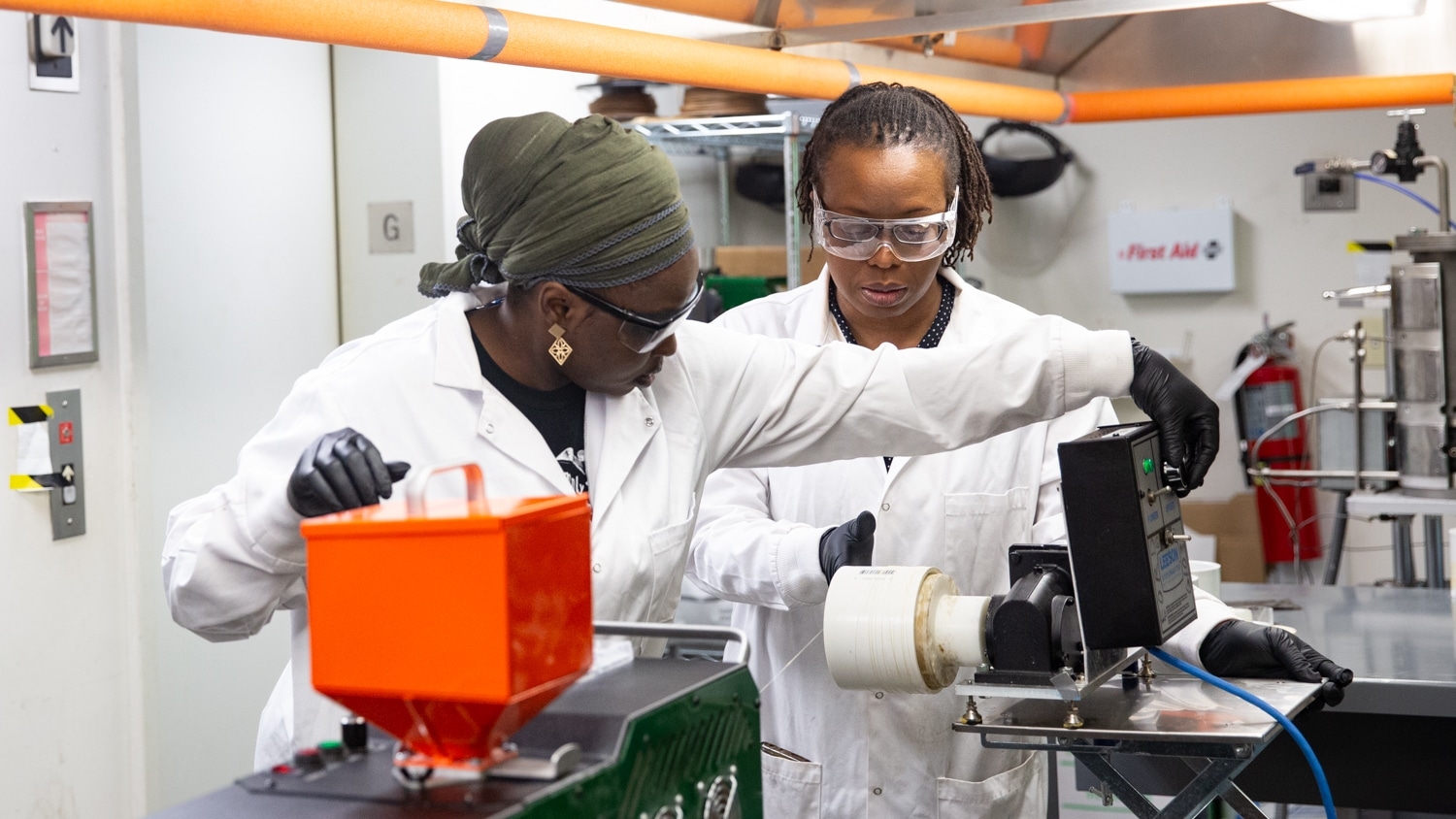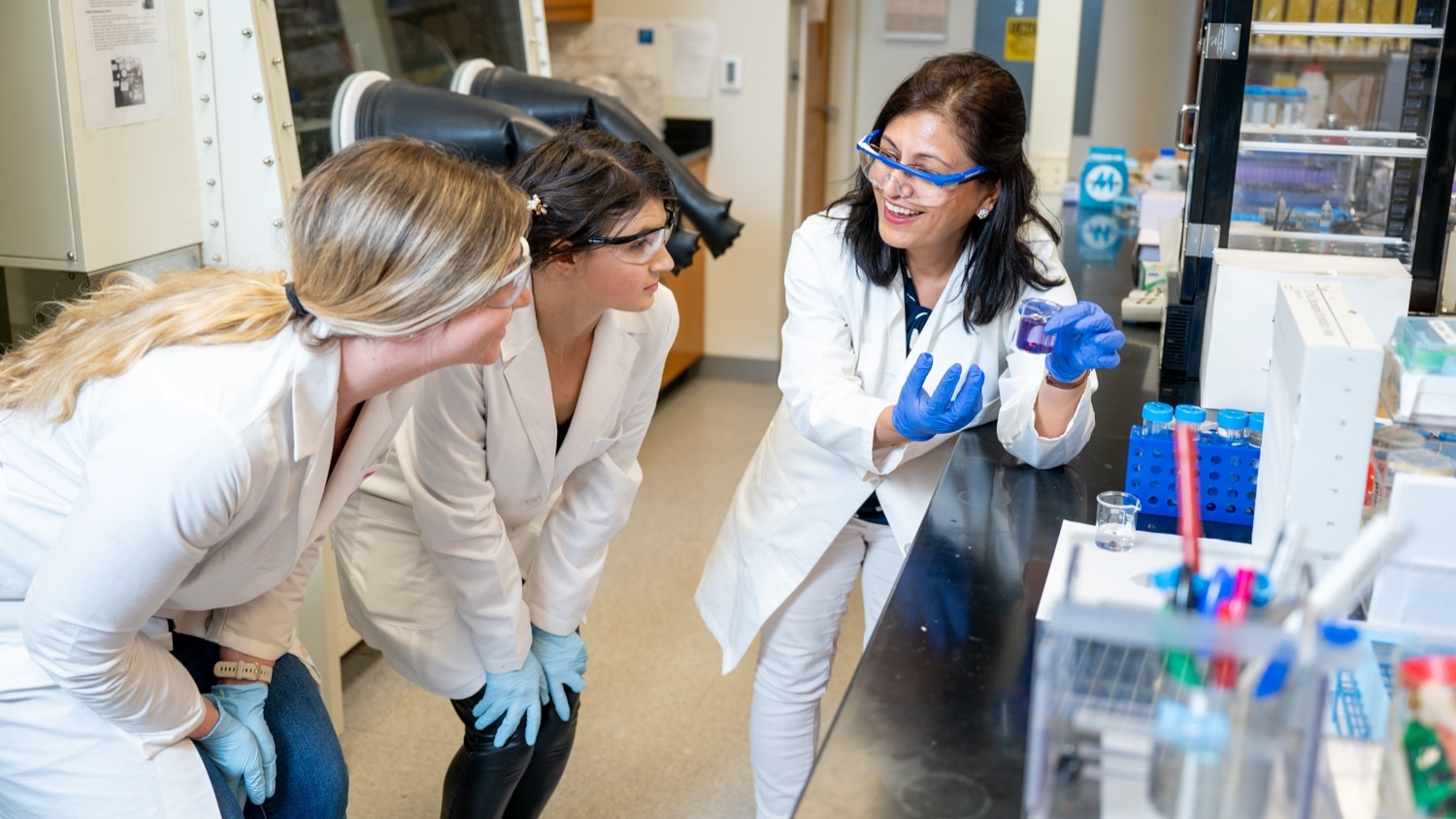Ortiz selected as Gulf Research Program Fellow


Dr. Alejandra C. Ortiz, assistant professor in the Department of Civil, Construction, and Environmental Engineering (CCEE) at North Carolina State University, has been selected as a 2018 Early-Career Research Fellow within the National Academies’ Gulf Research Program.
Ortiz is one of 20 Fellows selected in 2018. The program awards a two-year $76,000 grant to NC State, with $75,000 for research and the remaining $1,000 as an honorarium for Ortiz’s selected mentor, CCEE Professor Dr. Detlef Knappe. Ortiz said she will use the funding for field work to obtain initial results that can later be leveraged into larger proposals, as well as to help support a graduate student. She also plans to attend several conferences.
“The key thing that I do is to be able to predict what a coastal landscape is going to look like in 100 years,” Ortiz said. “But to do that, we need to understand what processes, what things drive that change.”
The Early-Career Research Fellowship supports scientists who are studying environmental and human health issues in the Gulf of Mexico. The Gulf Research Program was formed in 2013 as part of the settlement following the 2010 Deepwater Horizon oil spill.
“The point of this funding is to help early-career faculty move forward with their entire research portfolio rather than funding a particular project,” Ortiz said. “So all of us have done research in the Gulf of Mexico, but we are not tied to any particular project.”
One of Ortiz’s current projects is quantifying the processes, like wave energy and wind, that drive land loss caused by expanding water bodies. In her grant abstract, Ortiz explained that she will be expanding on her previous research on ponds in the Mississippi Delta River Plain. Using Landsat satellite data, Ortiz monitored 730 ponds and noticed that there was a relationship between dominant winds and the direction that ponds are expanding.
“Right now, the hypothesis is that the winds are kind of driving this wave-driven edge erosion, but what we want to do is actually go out and measure it and see, based on our initial modeling, are we finding that in reality?” she said.
About one football field of land is lost every hour in the Gulf and Mississippi Delta. Ortiz found that in the last 30 years, land loss from pond expansion accounted for 17 percent of the total. One way to slow down the loss would be to decrease the length of ponds — most of the land loss comes from ponds larger than 300 meters. If the larger ponds are interrupted with some kind of obstruction, like a breakwater, Ortiz said, in theory the waves would no longer be able to become as large and cause erosion.
Ortiz will also use the funding on other research projects, including for her master’s student’s research on Pacific atoll island morphometrics and the processes driving the changes in their shapes and sizes.
Ortiz joined the faculty at NC State in 2017. She earned her Ph.D. in marine geology from the Massachusetts Institute for Technology-Woods Hole Oceanographic Institute joint program in 2015.
- Categories:


